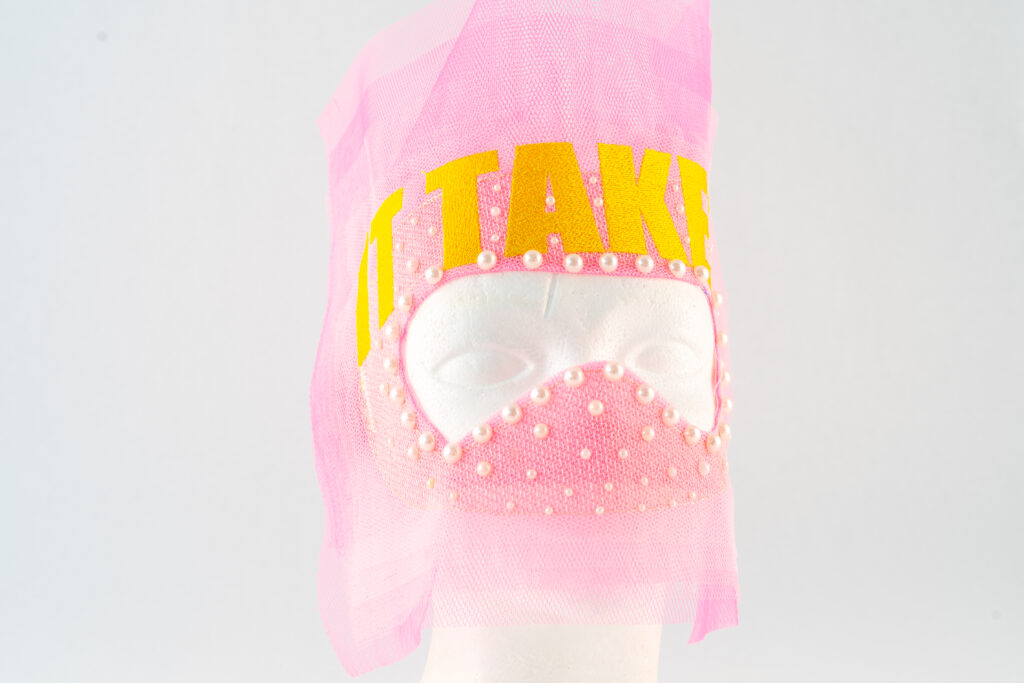Mother’s Nature
13 July – 24 August 2023
Artists: Jasmina Al-Qaisi, Ștefania Crișan, Cristina David, Monica Winther, Kiyoshi Yamamoto
Curated by: Maya Økland, Cristina Bută
Location: Sector 1 Gallery
In Norwegian, the word føde means both food and give birth. Nature is commonly referred to as Mother Earth, as she is portrayed in almost every culture: to the Aztecs, Earth was called Tonantzin – “our mother”; to the Incas, Earth was called Pachamama – “mother earth”, the word pacha in Quechua also signifying “space-time” or “universe”. The Chinese Earth goddess Hou Tu is similar to Gaia, the Greek goddess personifying the Earth. In other words, mother is simultaneously the symbol of our entire existence, and the everyday woman we all must relate to whether we like her, or not. She can be a he, she, them or they, biological, cultural, or spiritual. Absent, present, good, and bad. We dream of her unconditional love just as much as we find it hard to resist the desire to control her. Honored and blamed, the multitudes of ambivalence in her relations holds no limits. She can destroy us and nurture us, all at the same time.
In her writings, philosopher of science Isabelle Stengers calls Gaia/Earth a devastating power that shifts our categories of thought. Mother Nature is not the constant giver promising us nourishment, or, in a paradoxical fashion, the land of resources our capitalist societies continue to exploit. The title of the exhibition references both Mother Nature beyond her romanticized personification, as well as the relations and non-relations that we have with our mothers and other maternal figures and constructs. Much is bounded to mother. Just as our planet is constituted in a mesh of complex living organisms, motherhood and a mother’s nature rest on an equally intricate web of powerful connections, beyond one generation only. Whether it is to speculate, embody, make amends or pay tribute to, think with or inspire oneself from mother(s), the artists presented in the exhibition draw from various alternative scenarios in order to imagine, feel and protest. Within a society that is still prejudicious towards gender and race, in which certain stories and histories are or remain silenced, ecologies of care appear. How do we negotiate the relationship between care and emancipation? How do we grow with the other? The exhibition combines works that are thinking and feeling in their nature, proposing to mend a relationship that was often imbalanced in the arts. Reaching for the ambivalence towards one’s creation, spanning from the other side of the umbilical cord, to existing in a Universe. From queer and feminist perspectives, the artworks and performances of Norwegian and Romanian artists Cristina David, Jasmina Al-Qaisi, Kiyoshi Yamamoto, Monica Winther and Ștefania Crișan trace existential affection, power, anxiety and love while calling upon Mother.
In her video work made for the live stream series Postcards from Mars, produced by tranzit.ro Iasi, Cristina David sends a message to her mother Ana- Maria David during an artist residency at Skaftfell Art Center in Seyðisfjörður, Iceland, 2015. Eight years later, David records a similar message with her child in her latest video. Cristina David (b. 1979) is a conceptual artist that works a lot with humorous and quirky plot twists in her art. She holds an MFA from the Bergen National College of Art (2007), and has participated in artist residencies and exhibited internationally for several years. She lives and works in Bucharest, Romania.
Jasmina Al-Qaisi (b. 1991) is a poet who writes for voice and paper, articulating and performing language with sound, food or care practices towards uncontainable forms of literature. Often, she does all of this in close communication with her grandmother and her families of choice. Jasmina’s works in long poem formats become spaces that we inhabit, built on a feminist legacy and acts of empowerment. For this exhibition, Jasmina combines fragments of previous works with reflections on her past, stories of close women and post-anthropocentric naming imaginaries into a new sound installation. Jasmina Al-Qaisi lives and works in Berlin.
The creative landscape of Brazilian artist Kiyoshi Yamamoto may at first glance look colorful and sweet, like the many tropical fruits of Brazil, but once the fruit peel is removed a fierce taste of resistance hits you in the gut. His performance It Takes No Compromise to Give People Their Rights is a quote from gay rights activist and politician Harvey Milk, where 5 generations of queer people dressed in Yamamoto’s creations move to the tunes of the Brazilian composer Villa – Lobos. Kiyoshi Yamamoto (b. 1982) works in a multitude of techniques also including textile, painting, printing, installation, and video. He has exhibited internationally and holds an MFA from the Bergen National College of Art (2013). He lives and works in Bergen, Norway.
Monica Winther works with expressive installation and performances where life and art becomes one. Through drawings, sculptures and performance Winther works in an intuitive manner towards a trance-like state of mind grounded in her surroundings, and on a deeper level dealing with inherited sin through generations. Letting go of control, her performance becomes an improvisation to whatever rhythm and energies built up by the space and audience itself, as if a battle between the conscious and unconscious, figurative and abstract. Monica Winther (b. 1976) is a Norwegian performance artist working in various techniques. She has exhibited extensively in biennales, art museums, and underground galleries, and holds a BFA from the Bergen National College of Art (2007). For many years she has also educated young artists at the Strykejernet Art School. She lives and works in Oslo, Norway. Ștefania Crișan is interested in themes connected to the Anthropocene, questioning the paradoxes between the horror and the beauty of catastrophe, between observing the impossible inversion of the entropy and the healing virtues of ritual practices; between the death of a landscape and the death of painting. In 2017, she discovered the existence of Geamăna, a Romanian village deliberately flooded in the 1970s and turned into a settling pond for copper mining activities. Crișan collected images, objects and testimonies from the site and, through a sensitive understanding, translated them back into performances, installations, sculptures or intuitive chantings. Ștefania Crișan (b. 1993) is born in Romania but lives and works in Metz, France. She is the winner of the 2022 Luxembourg Encouragement for Artists Prize (LEAP) and has exhibited at FRAC Lorraine, Casino Luxembourg, Stadtgalerie Saarbrücken and Centre Pompidou-Metz.
In her video work made for the live stream series Postcards from Mars, produced by tranzit.ro Iasi, Cristina David sends a message to her mother Ana- Maria David during an artist residency at Skaftfell Art Center in Seyðisfjörður, Iceland, 2015. Eight years later, David records a similar message with her child in her latest video. Cristina David (b. 1979) is a conceptual artist that works a lot with humorous and quirky plot twists in her art. She holds an MFA from the Bergen National College of Art (2007), and has participated in artist residencies and exhibited internationally for several years. She lives and works in Bucharest, Romania.
Jasmina Al-Qaisi (b. 1991) is a poet who writes for voice and paper, articulating and performing language with sound, food or care practices towards uncontainable forms of literature. Often, she does all of this in close communication with her grandmother and her families of choice. Jasmina’s works in long poem formats become spaces that we inhabit, built on a feminist legacy and acts of empowerment. For this exhibition, Jasmina combines fragments of previous works with reflections on her past, stories of close women and post-anthropocentric naming imaginaries into a new sound installation. Jasmina Al-Qaisi lives and works in Berlin.
The creative landscape of Brazilian artist Kiyoshi Yamamoto may at first glance look colorful and sweet, like the many tropical fruits of Brazil, but once the fruit peel is removed a fierce taste of resistance hits you in the gut. His performance It Takes No Compromise to Give People Their Rights is a quote from gay rights activist and politician Harvey Milk, where 5 generations of queer people dressed in Yamamoto’s creations move to the tunes of the Brazilian composer Villa – Lobos. Kiyoshi Yamamoto (b. 1982) works in a multitude of techniques also including textile, painting, printing, installation, and video. He has exhibited internationally and holds an MFA from the Bergen National College of Art (2013). He lives and works in Bergen, Norway.
Monica Winther works with expressive installation and performances where life and art becomes one. Through drawings, sculptures and performance Winther works in an intuitive manner towards a trance-like state of mind grounded in her surroundings, and on a deeper level dealing with inherited sin through generations. Letting go of control, her performance becomes an improvisation to whatever rhythm and energies built up by the space and audience itself, as if a battle between the conscious and unconscious, figurative and abstract. Monica Winther (b. 1976) is a Norwegian performance artist working in various techniques. She has exhibited extensively in biennales, art museums, and underground galleries, and holds a BFA from the Bergen National College of Art (2007). For many years she has also educated young artists at the Strykejernet Art School. She lives and works in Oslo, Norway. Ștefania Crișan is interested in themes connected to the Anthropocene, questioning the paradoxes between the horror and the beauty of catastrophe, between observing the impossible inversion of the entropy and the healing virtues of ritual practices; between the death of a landscape and the death of painting. In 2017, she discovered the existence of Geamăna, a Romanian village deliberately flooded in the 1970s and turned into a settling pond for copper mining activities. Crișan collected images, objects and testimonies from the site and, through a sensitive understanding, translated them back into performances, installations, sculptures or intuitive chantings. Ștefania Crișan (b. 1993) is born in Romania but lives and works in Metz, France. She is the winner of the 2022 Luxembourg Encouragement for Artists Prize (LEAP) and has exhibited at FRAC Lorraine, Casino Luxembourg, Stadtgalerie Saarbrücken and Centre Pompidou-Metz.
Looking for more?
Address
Băiculești 29 Street, District 1, 013193, Bucharest, Romania
Opening Hours
Tuesday – Saturday, 2 – 7 PM
Sunday – Monday, by appointment only
Newsletter
Sign up to receive the latest news on the gallery’s artists
Sector 1 Gallery © 2023. All Rights Reserved.
Privacy Policy

